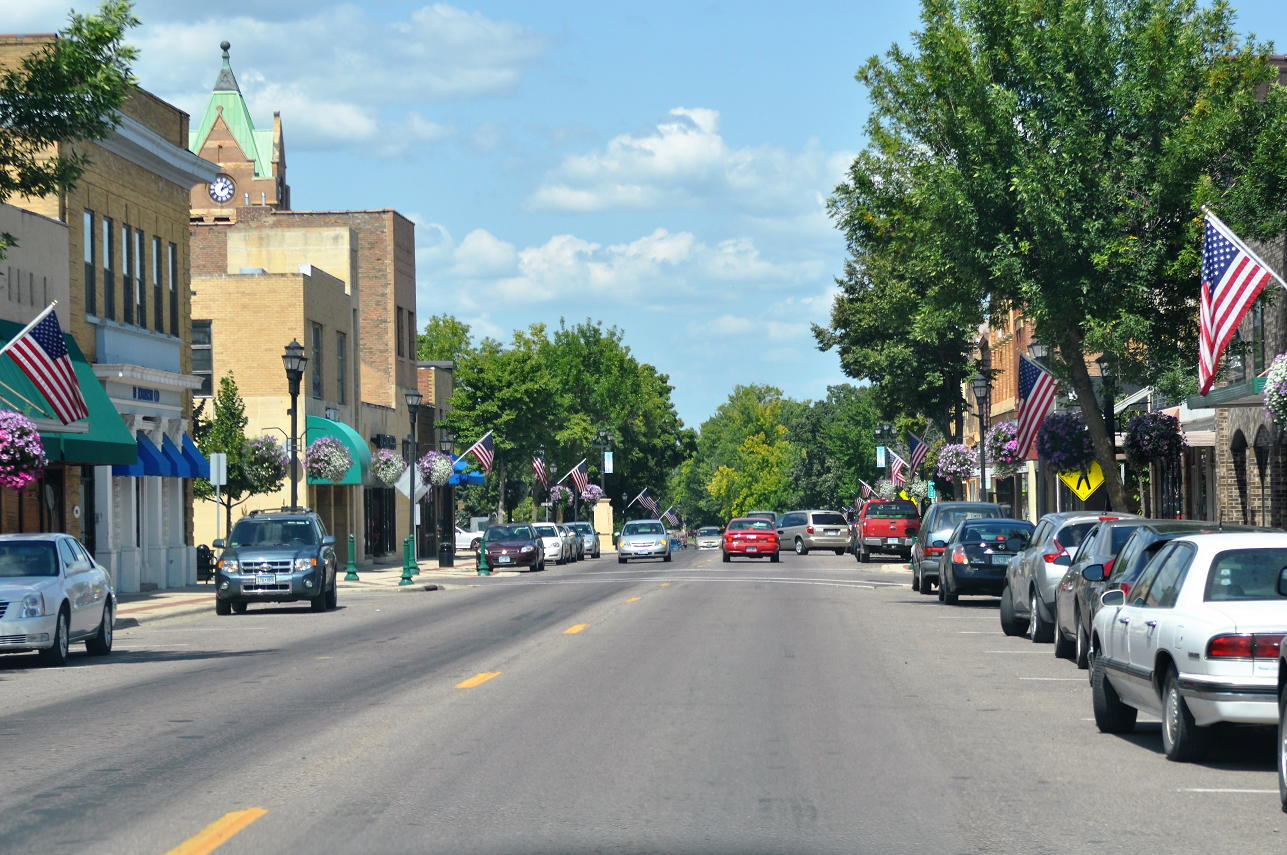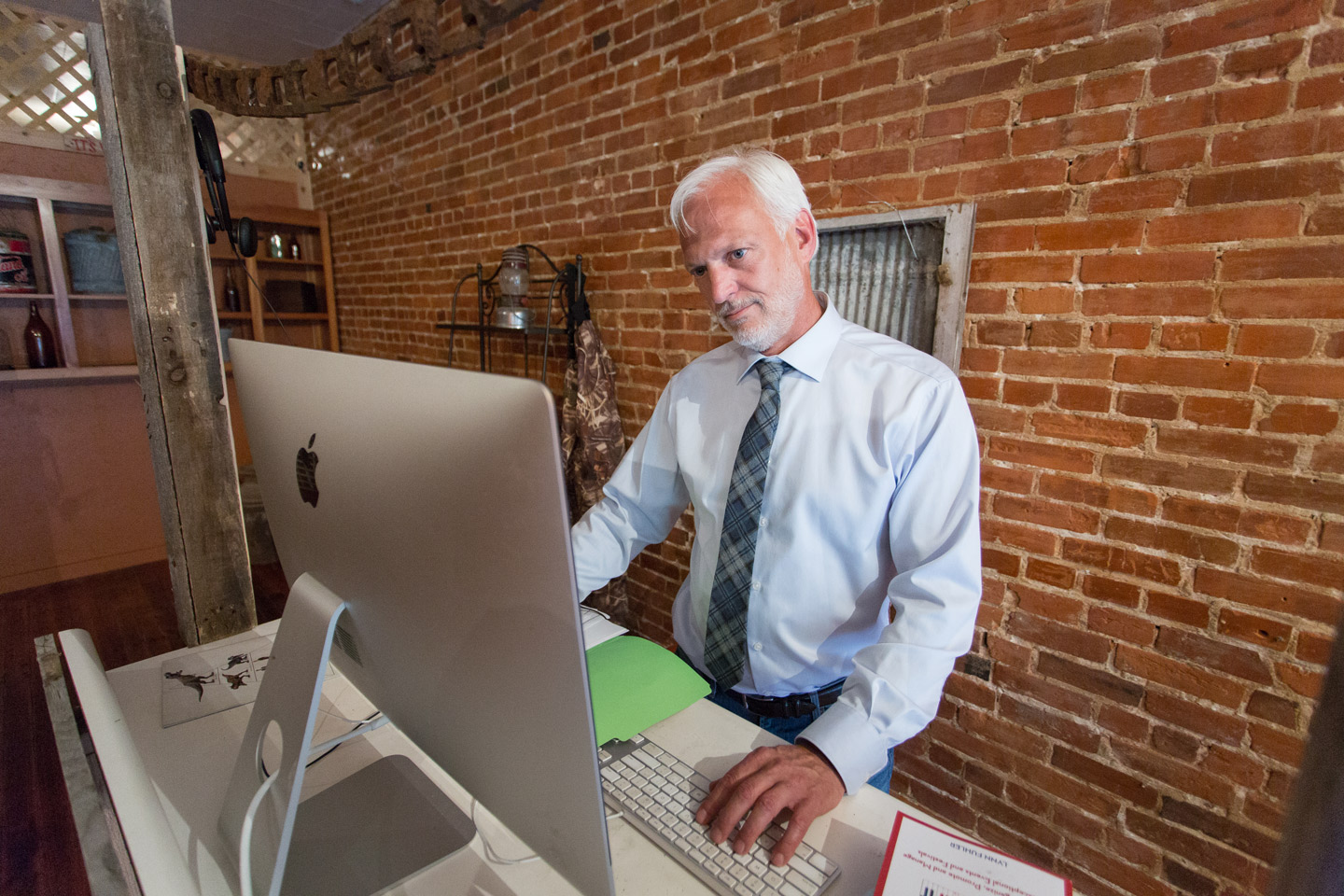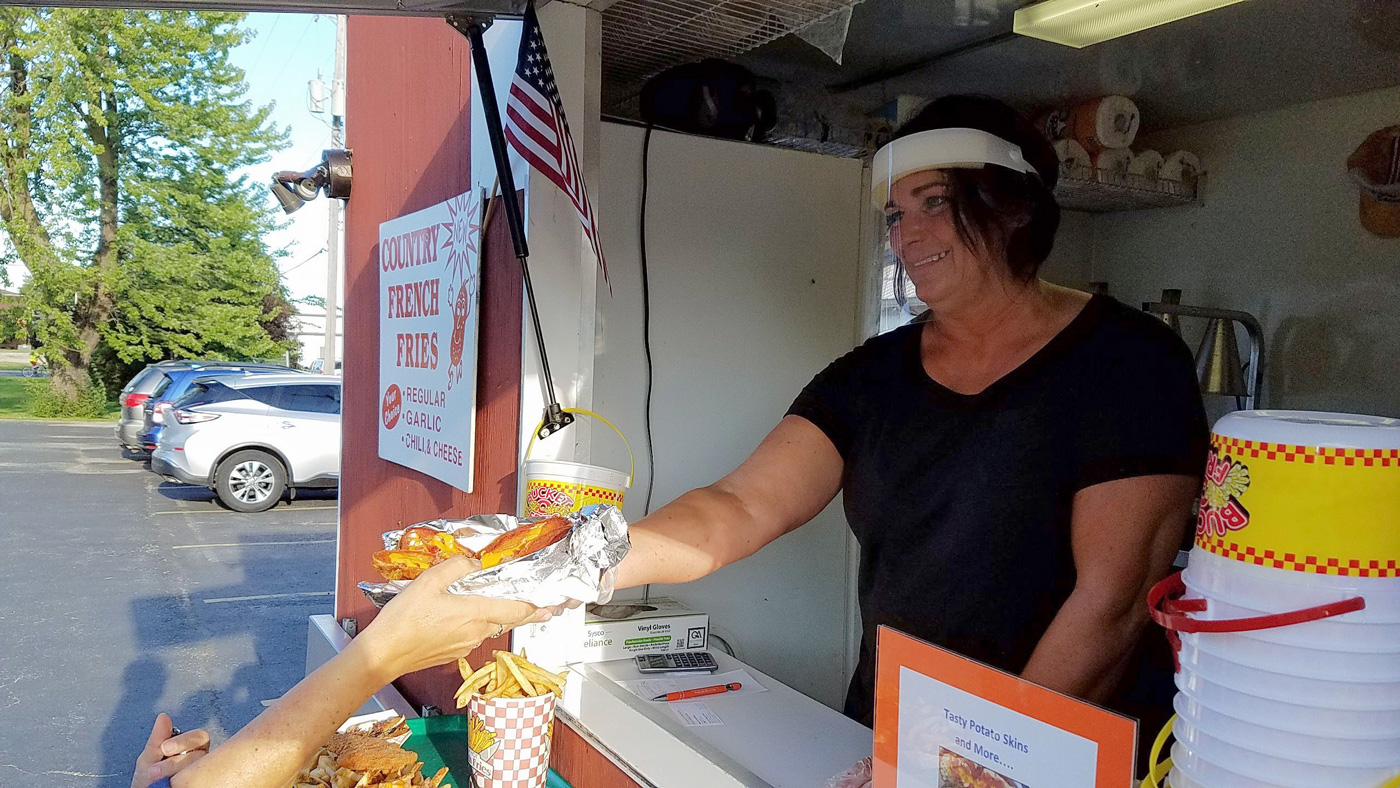Interested in receiving information from Extension on entrepreneurship, including community stories, and upcoming events and conferences?
“An entrepreneurial community is simply a place that creates easy access to the resources that people need when they start a business.”
— Rani Bhattacharyya
Is your town an entrepreneurial community? During times of economic change and uncertainty, local leaders may be thinking about the future. How do you help your town thrive? To build businesses for the future, it may require your community to think more about entrepreneurs today.
“An entrepreneurial community is simply a place that creates easy access to the resources that people need when they start a business,” says Rani Bhattacharyya, Extension community economics educator. “They create social hubs where entrepreneurs can solve problems. They create easier paths to financing for start-up and long-term growth. Most of all, entrepreneurial communities have a welcoming attitude toward business, and work to support the dreams of residents who are willing to take a risk.”
Community entrepreneurial resources
Extension is helping Minnesota's towns become entrepreneurial communities. The following resources may help your community focus on your entrepreneurs.
Examine your retail market
What types of retail businesses could grow in your community? Help your community identify retail opportunities for your local entrepreneurs with a retail trade analysis.
Support business transfers
Are you ready for business owners in your community to retire? Consider ways your town can support business succession and transition, including attracting new entrepreneurs to your community.
Amplify your community’s efforts
How might your community grow the local economy by supporting entrepreneurs? Extension can help with technical assistance and evaluation for your local community efforts. Listen to this podcast to hear a community example.
Connect with other communities
Since 2019, Extension has convened an annual Connecting Entrepreneurial Communities conference in Minnesota. This event helps entrepreneurs and communities connect, learn from each other, and share resources. Get more conference details.
Consult with Extension
We offer guidance to help communities find ways to support their local entrepreneurs. Connect with an Extension community economics educator to take advantage of education and research that will make a difference.
Review recent research
Extension helps communities and industries understand the potential for business development and growth. We also examine the economic impact of local entrepreneurial efforts. The following are some recent reports on this topic.
Five questions to help your community focus on entrepreneurs
National scholars have studied community entrepreneurism initiatives during the past decade. They offer five areas of inquiry that may help your town as you consider ways to support entrepreneurs.
A deep dive can help local leaders and businesses understand their community’s current economic structure, its place in a broader regional and statewide economy, relevant emerging sectors and demographic trends that might support or detract your efforts.
“Entrepreneurial communities strive to understand how entrepreneurs think, what scares them and what moves them forward,” says Rani Bhattacharyya, Extension community economics educator. “That kind of empathy helps them create a real support system.”
When communities map out their available resources, they make it easier for entrepreneurs to find help, and they start to see what can get in the way of entrepreneurial success. Ultimately, communities can build an infrastructure to serve entrepreneurs throughout their path.
“Like Waseca, most communities have done some solid economic development,” says Bhattacharyya. “So the next questions are, ‘What role do entrepreneurs play in helping you achieve your economic development goals? And how can you break down barriers so that entrepreneurs can succeed?’”
Engaging stakeholders in the community and across the region can connect your community to more resources and ideas. “We recommend bringing stakeholders to the table who have a vested interest in growing local business,” says Bhattacharyya.
“Coming together communicates an important message to entrepreneurs,” she says. “Your town believes in you, and we want you to succeed.”
Note: Those five questions were drawn from Don Macke's work with Deborah Markley and Thomas Lyons: Creating entrepreneurial communities: building community capacity for ecosystem development. Macke has experience working with community development leaders to create entrepreneurial communities.
Listen to our interview with Don Macke from Entrepreneurial Ecosystems (E2) and Pam Bishop from the Southern Minnesota Initiative Foundation in our podcast episode REVing up entrepreneurship. Hear about their work and stories from communities helping entrepreneurs.
Featured story from Minnesota
"Entrepreneurs fill buildings and create new opportunities."
— Gary Sandholm
Waseca, Minnesota’s path to becoming an entrepreneurial community started with a committee called the Business and Entrepreneurial Support Team (B.E.S.T). The town of 9,000 had lost more than 1,000 jobs when local printing businesses declined and then closed. In 2016, B.E.S.T. began work on a Vision 2030 plan in collaboration with the City of Waseca, Waseca Chamber of Commerce, Waseca County, Mayo Clinic Health System-Waseca and Waseca Public Schools.
“With Vision 2030, entrepreneurism became an important part of achieving our goals,” says Sandholm. “Entrepreneurs fill buildings and create new opportunities.” Over time, Waseca has organized a host of resources that support business owners and would-be entrepreneurs — from Small Business Development Center consultation to “1 Million Cups” regional gatherings where entrepreneurs bounce concerns and opportunities off of experienced business people. Classes about starting a business are happening in local high schools and community settings.
Waseca hopes that this “buzz” about entrepreneurism will create a pipeline that eventually employs as many people as the printing industry once did. But they are also eager to support businesses that improve the local quality of life. “Entrepreneurism can help us retain people who grew up here or attract new residents,” Sandholm says.
Waseca has seen success. Two new breweries have started. A family bought an existing coffee shop, expanded its evening hours and added wine, beer and more food to the menu. A local “pizza farm” is an agritourism offering that will start its third season this summer. “It’s extremely popular,” says Sandholm.“And we’ve also had a number of retail stores fill our downtown spaces.”
Share your community’s story
How is your community helping entrepreneurs? What lessons have you learned? We are interested in hearing from you. Share your story using this form and tell us about your success and challenges.







